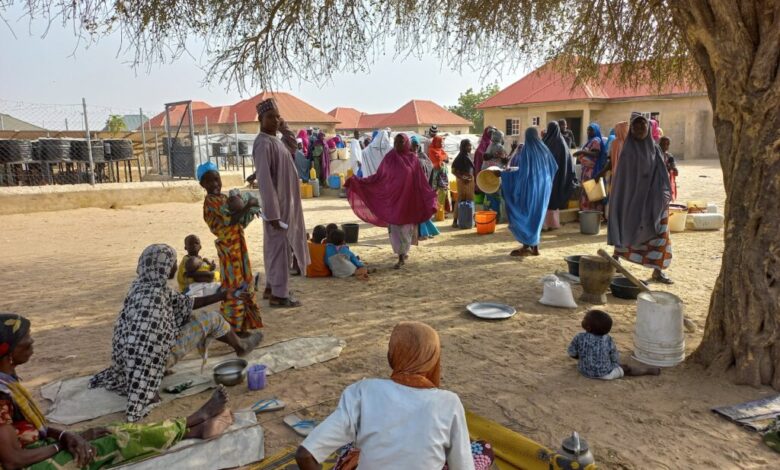Humanitarian Community Gets 1% Of Total Demand For Intervention In Northeast
As of March 31, the US is the largest humanitarian donor in northeastern Nigeria.

Donors have so far provided 1.2 per cent of the total funding requirement for the 2022 Humanitarian response plan to provide critical humanitarian assistance in Borno, Adamawa, and Yobe states.
The United Nations and partners had appealed for 1.1 billion dollars to respond to the critical needs of 8.4 million people needing life-saving humanitarian assistance in three affected states in northeastern Nigeria.
The relief intervention in the region includes food security, nutrition, water sanitation and hygiene. Alongside other support such as protection, education, livelihood, and shelter.
“To date, the generous donors have provided $13.9 million, which represents 1.2 per cent of the total requirement. In addition, some organizations, including the UN, NGO and Red Cross Movement, have received $186.1 million outside the HRP,” said the UN Office for the Coordination of Humanitarian Affairs in a statement.
The statement, which covered donations towards the HRP as of March 31, also added that multi-purpose cash projects received the most significant funding at 5.0 million dollars, followed by Coordination at 1.6 million dollars.
The United States was reported as the largest donor to the Borno, Adamawa, and Yobe crisis so far in 2022.
According to a recent report by Famine Early Warning System Network, persisting conflict related to the insurgency in the region continues to limit livelihood activities and humanitarian access.
Delivery of aid in the northeast declined in January and February. “About 30 per cent fewer beneficiaries were reached in January than in December,” the report said.
It added that the decline in the humanitarian response was due to limited funding. The delivery of assistance is also expected to decline monthly at current funding levels, with only an estimated 600,000 people likely being reached in June.
The inability of humanitarian actors to raise the necessary resources to support relief missions would aggravate the suffering of displaced persons and communities.
This would also affect the ability of aid actors to prepare for the rainy season and the associated risk posed by flooding and extreme to shelter, water, sanitation, and hygiene.
Support Our Journalism
There are millions of ordinary people affected by conflict in Africa whose stories are missing in the mainstream media. HumAngle is determined to tell those challenging and under-reported stories, hoping that the people impacted by these conflicts will find the safety and security they deserve.
To ensure that we continue to provide public service coverage, we have a small favour to ask you. We want you to be part of our journalistic endeavour by contributing a token to us.
Your donation will further promote a robust, free, and independent media.
Donate HereStay Closer To The Stories That Matter




